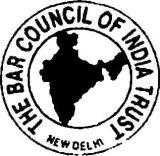The Bar Council of India was established by Parliament under the Advocates Act, 1961 to regulate and represent the Indian bar. BCI performs the regulatory function by prescribing standards of professional conduct and etiquette and by exercising disciplinary jurisdiction over the bar. BCI also sets standards for legal education and grants recognition to Universities whose degree in law will serve as qualification for enrolment as an advocate. These are all the main functions of BCI under the Advocates Act.

However, BCI also performs certain representative functions by protecting the rights, privileges and interests of advocates and through the creation of funds for providing financial assistance to organise welfare schemes for them under the fundraising powers of the BCI which are embedded in its constituting documents.
The following statutory functions under Section 7 cover the Bar Council’s regulatory and representative mandate for the legal profession and legal education in India:
- To lay down standards of professional conduct and etiquette for advocates.
- To lay down procedure to be followed by its disciplinary committee and the disciplinary committees of each State Bar Council.
- To safeguard the rights, privileges and interests of advocates.
- To promote and support law reform.
- To deal with and dispose of any matter which may be referred to it by a State Bar Council.
- To promote legal education and to lay down standards of legal education. This is done in consultation with the Universities in India imparting legal education and the State Bar Councils.
- To recognise Universities whose degree in law shall be a qualification for enrolment as an advocate. The Bar Council of India visits and inspects Universities, or directs the State Bar Councils to visit and inspect Universities for this purpose.
- To conduct seminars and talks on legal topics by eminent jurists and publish journals and papers of legal interest.
- To organise legal aid to the poor.
- To recognise on a reciprocal basis, the foreign qualifications in law obtained outside India for the purpose of admission as an advocate in India.
- To manage and invest the funds of the Bar Council.
- To provide for the election of its members who shall run the Bar Councils.
What are the requirements for enrolment as an advocate under the Advocates Act?
Section 24 of the Advocates Act specifies the qualifications of a person entitled to be enrolled into the Bar. The section states that subject to the provisions of this Act, and the rules made there under, a person shall be qualified to be admitted as an advocate on a State roll, if he fulfils the following conditions:
- He is a citizen of India, although a national of any other country may be admitted as an advocate on a State roll, if citizens of India, duly qualified, are permitted to practise law in that other country, subject to other restrictions.
- He has completed the age of twenty-one years.
- He has obtained a degree in law after the 12th day of March, 1967, after undergoing a three years course of study in law from any University in India which is recognised for the purposes of the Advocates Act by the Bar Council of India. In some cases, a lawyer who has obtained a degree from any University outside the territory of India, if the degree is recognised for the purpose of this Act by the Bar Council of India, he may be admitted.
- He fulfils such other conditions as may be specified in the rules made the State bar Council under this Chapter;
At present, a person who wants to get enrolled as an advocate has to first clear Bar Council of India exam. Thereafter the person can enrol himself/ herself under any State Bar Council.
Eligible persons are admitted as advocates on the rolls of the State Bar Councils. The Advocates Act, 1961 empowers State Bar Councils to frame their own rules regarding enrolment of advocates.
The Council’s Enrolment Committee may scrutinise a candidate’s application. Those admitted as advocates by any State Bar Council are eligible for a Certificate of Enrolment.
All applicants for enrolment as advocates are required under Section 24 (1) (f) of the Advocates Act, 1961 to pay an enrolment fee of Rs.600/- (Rupees Six hundred only) to the respective State Bar Council and Rs.150/- (Rupees One hundred Fifty only) to the Bar Council of India. These payments should be made using separate demand drafts.
Different state bar councils have formulated their own rules regarding enrolment as an advocate. However, most of the State Bar Council requires the candidate to submit an application along with the degree of law and mark-sheets along with judicial Stamp paper and requisite fees.
LawSikho has created a telegram group for exchanging legal knowledge, referrals and various opportunities. You can click on this link and join:
https://t.me/joinchat/J_
 Serato DJ Crack 2025Serato DJ PRO Crack
Serato DJ Crack 2025Serato DJ PRO Crack







 Allow notifications
Allow notifications


